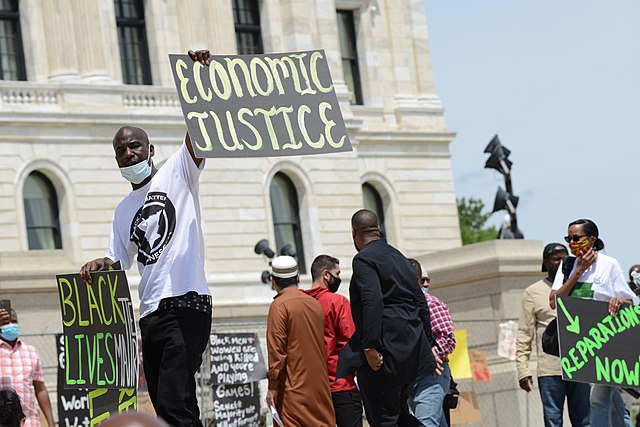In a significant move toward legal redress and historical accountability, the City of Decatur, Georgia, has officially adopted a resolution creating a Reparations Task Force and issued a sweeping apology for its role in the systemic oppression of African Americans.
The Decatur City Commission voted unanimously on Monday, May 6, to approve the resolution, which sets in motion a three-year mandate for the newly formed task force to investigate, document, and propose remedies for a legacy of racial injustice—including slavery, convict leasing, redlining, and the forced displacement of Black communities.
Legal and Policy Implications

The resolution acknowledges that Decatur engaged in racially discriminatory practices through zoning, policing, school segregation, and property seizures, with a specific reference to the displacement and cultural erasure of the Beacon Hill community.
The city stated it “extends a full and public apology to the Black residents of Decatur—past and present—and their descendants,” for policies “rooted in the system of white supremacy.”
This public admission has potential legal significance. While the resolution does not include direct compensation at this stage, it lays the groundwork for recommendations that could result in tangible benefits, memorialization projects, or economic equity initiatives aimed at remedying past harms.
Legal analysts note that the formation of such task forces, although non-binding, reflects a growing willingness among municipalities to confront the legal and moral liabilities associated with their histories of racial exclusion and dispossession.
Structure of the Task Force
Over the next 60 days, city officials will appoint between seven and eleven task force members, with candidates recommended by the Beacon Hill Black Alliance for Human Rights—a grassroots organization already contracted by the city in 2023 to conduct reparations research. Members will include legal scholars, civil rights advocates, youth representatives, and historians.
The task force is expected to:
- Examine historical records of Black land and property loss
- Investigate economic displacement and discriminatory city policies
- Interview descendants of formerly enslaved residents and displaced families
- Develop policy recommendations for municipal action, which may include community reinvestment strategies, legal reforms, and city-sponsored equity programs
Precedent and Regional Activity
Decatur joins a growing list of jurisdictions—including Evanston, Illinois and Fulton County, Georgia—that are engaging in reparations-focused inquiries and policy development. Legal scholars have cited such local efforts as critical precursors to broader reparations litigation and legislative proposals at the state and federal levels.
Fulton County, for instance, approved a reparations task force in 2023, although meetings have paused while the group prepares a report on the legal and economic impacts of slavery and segregation. Activity is expected to resume in 2025.
Looking Ahead
The Decatur task force is expected to release annual progress reports, with a final report due within three years. While the city’s resolution stops short of making binding reparations commitments, legal observers say the move is a clear signal that local governments may soon face more direct legal and political pressure to redress racial harm through concrete, enforceable mechanisms.
As the legal contours of municipal accountability for historical racial injustice continue to evolve, Decatur’s initiative could serve as a blueprint—or a legal test case—for cities across the United States reckoning with their past.

